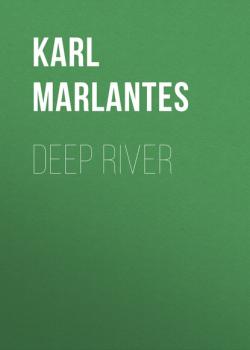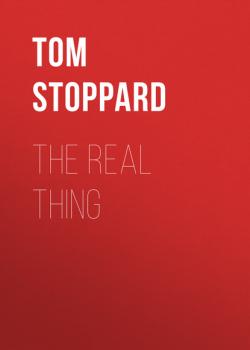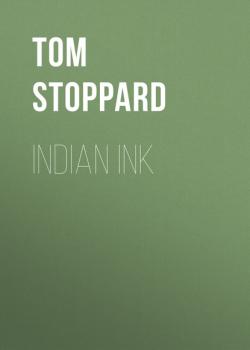Ingram
Все книги издательства IngramThe Western Wind
The Western Wind has been singled out by the Guardian in a preview of “best fiction in 2018” and the books editor at The Bookseller chose it as her book of the year, the book that deserves to break out Harvey to a wider audience Harvey has been praised by Michael Cunningham, Tessa Hadley, and AM Holmes; James Wood raved about Dear Thief in the New Yorker , where he called Harvey’s prose “luminous” and “rich but always lucid” and said that he “was at moments reminded of Marilynne Robinson” Dear Thief was shortlisted for the James Tait Black Prize and longlisted for the Bailey’s Prize for Women’s Fiction Harvey’s 2009 debut The Wilderness won the Betty Trask Prize; it was shortlisted for the Orange Prize, the Guardian First Book Award, and longlisted for the Man Booker Prize Harvey has a postgraduate degree in philosophy and her insightful, contemplative approach to story has earned her comparisons to Virginia Woolf, Marilynne Robinson, WG Sebald, Claire Messud, John Banville, and Joseph O’Neill The Western Wind is both a propulsive medieval mystery and a meditation on faith and existence that will appeal to readers of Eleanor Catton, Sarah Waters, and Donna Tartt Set in 1491, the year Henry VIII was born, Harvey places the plot in the run-up to Lent, and tells it through the voice of a village priest and confessor; the novel subtly foreshadows the events of the English Reformation, which would take place approximately within the next four decades Harvey teaches creative writing at Bath Spa University in the UK; she was a member of the jury for the 2016 Giller Prize Her stories have appeared in Granta and on BBC Radio4
Deep River
Karl Marlantes’s debut novel, Matterhorn , and his nonfiction account of combat, What It Is Like to Go to War , were both New York Times bestsellers and have sold over half a million copies combined across all formats. An enormous critical success, Matterhorn won the Center for Fiction’s 2010 Flaherty-Dunnan First Novel Prize and was named a New York Times Notable Book, among many other accolades. Marlantes is a key talking head in Ken Burns and Lynn Novick’s monumental 10-part, 18-hour documentary series “The Vietnam War,” which premieres on PBS September 2017. We have newly promoted Matterhorn and What It Is Like to Go to War in conjunction with the series, and Marlantes is involved in publicity for the book—his name will be fresh in reader’s minds. In Deep River , Marlantes turns from war to tell a sweeping family saga inspired by his grandmother’s generation of Finns who immigrated to the logging communities of the Pacific Northwest at the turn of the century. Deep River is an incredibly humane tale of courage, sacrifice, and reinvention in the face of political, economic, and natural forces much larger than the individual. The novel has great historical detail about the food, music, clothing, and social customs, all blending Scandinavian tradition with new American influences. Like Ken Kesey’s 1964 classic Sometimes a Great Notion , Deep River takes a compelling deep dive into the dangerous world of gypo loggers in the Pacific Northwest (which was even more dangerous in the earlier era Marlantes writes about). In his nuanced exploration of everyday immigrant life on the western frontier, Marlantes is also writing in the tradition of the likes of Willa Cather, Wallace Stegner, and more recently, Ivan Doig. Matterhorn also won the 2011 Indies Choice Award for Adult Debut Book of the Year, the 2011 William E. Colby Award, and the 2011 Pacific Northwest Book Award; was named one of Amazon’s top 5 best books of the year, and an Esquire , Entertainment Weekly , Hudson, Shelf Awareness , Oregonian , and Pop Matters best book of the year; and was shortlisted for the International IMPAC Dublin Literary Award. Sessalee Hensley was an early champion of the novel, which was selected for the Barnes & Noble Discover Great New Writers Program, saying of it, “Karl Marlantes has written a classic.” Despite its focus on a very American experience, rights to Matterhorn sold in Israel (Sifriat Ma-ariv), China (Shanghai Gaotan), Taiwan (Ecus), Holland (Meulenhoff), France (Calmann-Levy), Hungary (Europa), Italy (Rizzoli), and Poland (Sonia Draga).
The Real Thing
The Real Thing won the 1984 Tony Award for Best Play, the New York Drama Critics’ Circle Award for Best Play, the Drama Desk Award for Outstanding New Play, and the 1982 Evening Standard Award for Best Play. The Real Thing has sold nearly 20,000 copies in the US to date. The Real Thing was first performed in 1982 at The Strand Theatre in London, starring Felicity Kendal and Roger Rees and produced by Michael Codron. It was subsequently transferred to the Plymouth Theatre on Broadway in a production by Emanuel Azenberg starring Glenn Close and Jeremy Irons. The play was revived in 2000 on Broadway and in London, then again on Broadway in a 2014 production directed by Sam Gold, starring Ewan McGregor and Maggie Gyllenhaal. Grove is republishing titles by Stoppard that were previously published by FSG (including Arcadia , Indian Ink , and The Real Thing ) and updating our Stoppard backlist to give these books a fresh look. We are also publishing the old FSG titles in ebook for the first time.
Indian Ink
Indian Ink is an expansion of Stoppard’s 1991 radio drama In the Native State , which was inspired by his childhood years in 1940s Darjeeling. A neglected gem in Stoppard’s oeuvre, Indian Ink is recapturing the attention of American audiences. It was recently revived in a 2015 production at the American Conservatory Theater (ACT) in San Francisco directed by Carey Perloff. Perloff also directed an Off-Broadway production at the Laura Pels Theatre in 2014, featuring Rosemary Harris, Romola Garai, and Firdous Bamji. The play was nominated for the 2015 Lucille Lortel Award for Outstanding Revival. Indian Ink originally premiered at the Yvonne Arnaud Theatre, Guildford, and opened at the Aldwych Theatre in London, on February 27, 1995, directed by Peter Wood. The play had its American premiere in 1999 at the ACT, directed by Perloff. It was produced Off-Off-Broadway at Walkerspace in 2003, directed by Ashok Sinha. Grove is republishing titles by Stoppard that were previously published by FSG (including Arcadia , Indian Ink , and The Real Thing ) and updating our Stoppard backlist to give these books a fresh look. We are also publishing the old FSG titles in ebook for the first time.
The Years, Months, Days
Over the last decade, Yan Lianke has been continually heralded as one of the “best contemporary Chinese writers” ( The Independent ) and “one of the country’s fiercest satirists” ( The Guardian ). Among many awards and honors, he has been twice a finalist for the Man Booker International Prize and he was awarded the prestigious Franz Kafka Prize for his impressive body of work. Now, for the first time, his two most acclaimed novellas are being published in English. “Timeless” and “marvelous” ( Asian Review of Books ), Marrow is a haunting story of a widow who goes to extremes to provide a normal life for her four physically and mentally disabled children. When she finds out that bones “the closer from kin the better” can cure their illnesses and prevent future generations from the same fate, she feeds them a medicinal soup made from the bones of her dead husband. But after running out of bones, she resorts to a measure that only a mother can take. A luminous, moving fable, The Years, Months, Days —a bestselling classic in China and winner of the prestigious Lu Xun Literary Prize—tells of an elderly man who stays in his small village after a terrible drought forces everyone to leave. Unable to make the grueling march through the mountains, he becomes the lone inhabitant, along with a blind dog. Tending to a single ear of corn, and fending off the natural world from overtaking the village, every day is a victory over death. With touches of the fantastical, these two novellas—masterpieces of the form—reflect the universality of mankind’s will to live, live well, and live with purpose.
The Beat Hotel
The Beat Hotel has been closed for nearly forty years. But for a brief period—from just after the publication of Howl in 1957 until the building was sold in 1963—it was home to Allen Ginsberg, William Burroughs, Gregory Corso, Brion Gysin, Peter Orlovsky, Harold Norse, and a host of other luminaries of the Beat Generation. Now, Barry Miles—acclaimed author of many books on the Beats and a personal acquaintance of many of them—vividly excavates this remarkable period and restores it to a historical picture that has, until now, been skewed in favor of the two coasts of America.A cheap rooming house on the bohemian Left Bank, the hotel was inhabited mostly by writers and artists, and its communal atmosphere spurred the Beats to incredible heights of creativity. Its inhabitants followed the Howl obscenity trial, and they corresponded with Jack Kerouac as On the Road was taking off. There Ginsberg wrote “Kaddish,” “To Aunt Rose,” “At Apollinaire’s Grave,” and “The Lion for Real,” and Corso developed the mature voice of The Happy Birthday of Death. The Beat Hotel is where the Cut-up method was invented, and where Burroughs finished and published Naked Lunch and the Cut-up novels. From a party where Ginsberg and Corso drunkenly accosted Marcel Duchamp and Man Ray, to an awestruck audience with Louis-Ferdinand Céline a year before he died; from a drug-addled party on a houseboat on the Seine with Errol Flynn and John Huston, to Burroughs’s near arrest as a heroin dealer: mischief, inspiration, and madness followed the Beats wherever they went. Based on firsthand accounts from diaries, letters, and many original interviews, The Beat Hotel is an intimate look at a crucial period for some of the twentieth century’s most enduring and daring writers.
Difficult Women
Award-winning author and powerhouse talent Roxane Gay burst onto the scene with An Untamed State and the New York Times bestselling essay collection Bad Feminist (Harper Perennial). Gay returns with Difficult Women, a collection of stories of rare force and beauty, of hardscrabble lives, passionate loves, and quirky and vexed human connection.The women in these stories live lives of privilege and of poverty, are in marriages both loving and haunted by past crimes or emotional blackmail. A pair of sisters, grown now, have been inseparable ever since they were abducted together as children, and must negotiate the elder sister's marriage. A woman married to a twin pretends not to realize when her husband and his brother impersonate each other. A stripper putting herself through college fends off the advances of an overzealous customer. A black engineer moves to Upper Michigan for a job and faces the malign curiosity of her colleagues and the difficulty of leaving her past behind. From a girls’ fight club to a wealthy subdivision in Florida where neighbors conform, compete, and spy on each other, Gay delivers a wry, beautiful, haunting vision of modern America reminiscent of Merritt Tierce, Jamie Quatro, and Miranda July.
Complete Works, Volume IV
Dramatist, scriptwriter, short story writer, novelist, poet, director, and actor, Harold Pinter has earned universal praise for his distinctive style and imagination. In this, the most recent of four volumes, Pinter's work echoes many of his earlier themes and techniques-struggles for power and an ambience of menace-while finding fresh subject matter and means to express his changing dramatic vision. This volume contains three of Pinter's most famous plays, including Old Times, which Clive Barnes called «a joyous, wonderful play that people will talk about as long as we have theater»; a television play, Monologue; and a radio piece, Family Voices.Includes:Old TimesNo Man's LandBetrayalMonologueFamily Voices
Ivanov
Anton Chekhov was a master whose daring work revolutionized theater, and this was as true of Ivanov, his first full-length play, as of The Cherry Orchard, his last. Building on the success of his acclaimed adaptation of The Seagull, Tom Stoppard returns to Chekhov and the themes of bitter social satire, personal introspection, and the electrifying atmosphere of Russia on the brink of change. In these two new versions, Stoppard brings his crisp and nimble style to two masterpieces of the modern theater. Ivanov is a portrait of a man plagued with self-doubt and despair. Considered one of Chekhov’s most elusive characters, he seeks more in life than the selfabsorption and ennui he sees in his contemporaries. Tormented by falling out of love with his dying Jewish wife, Ivanov, on her death, proposes to the young daughter of his neighbor, but, as the wedding party assembles, a final burst of his habitual indecisivness has fatal results.
Speed-the-Plow
Speed-the-Plow is an exhilaratingly sharp, comical, disturbing play about the power of money and sex in Hollywood, and how they corrupt two movie producers. Speed-the-Plow opened at Lincoln Center to sold-out seats, rave reviews and much fanfare in March 1988—staring Madonna, Joe Mantegna, and Ron Silver—and later moved to and had a long-standing run on Broadway.









